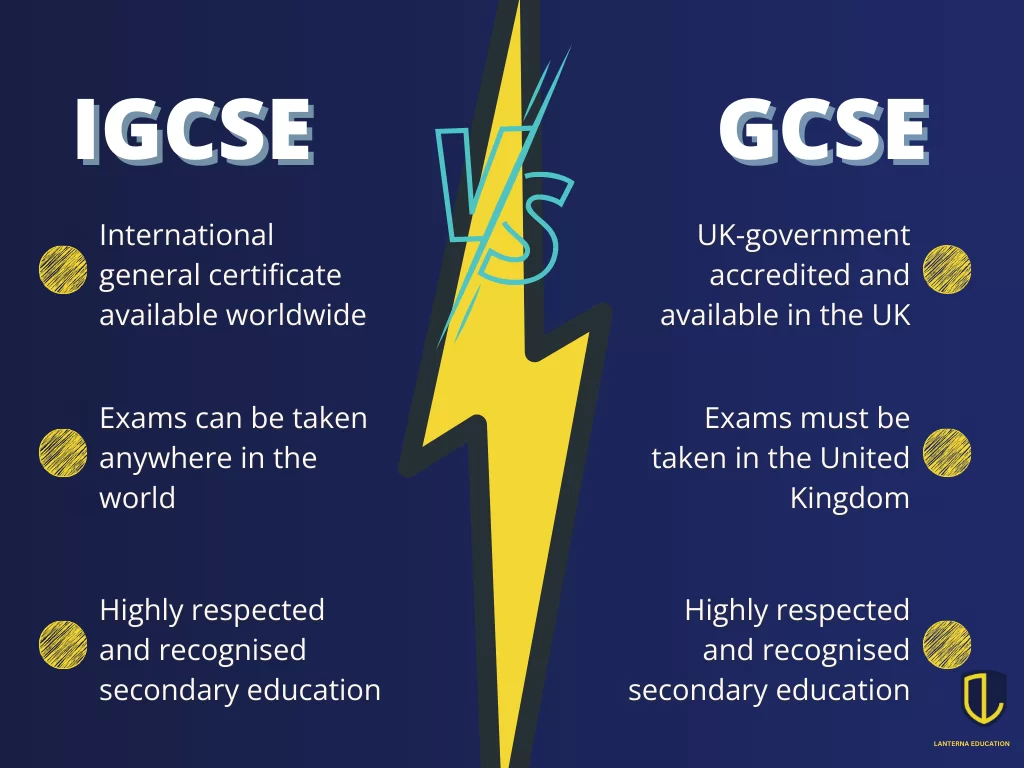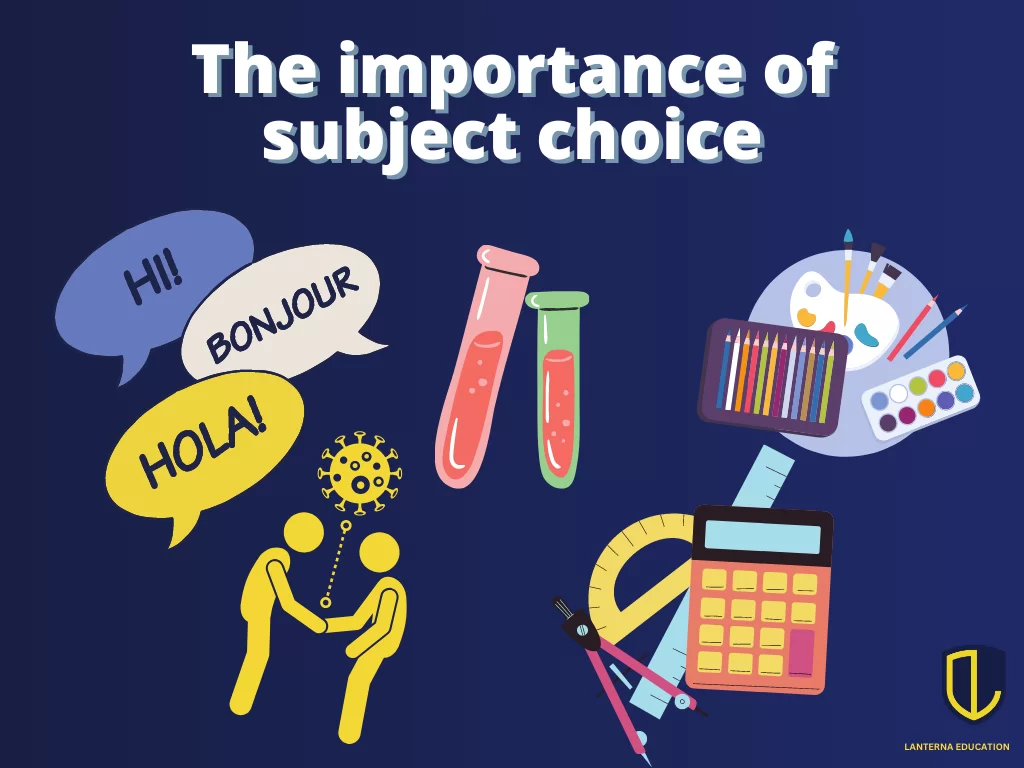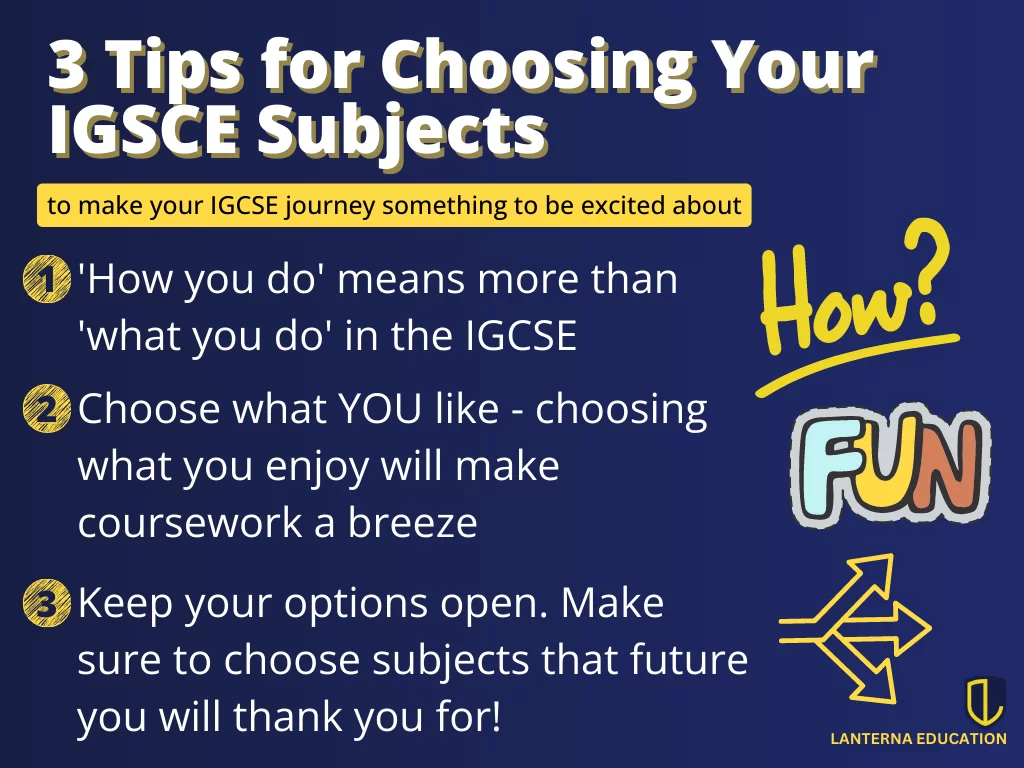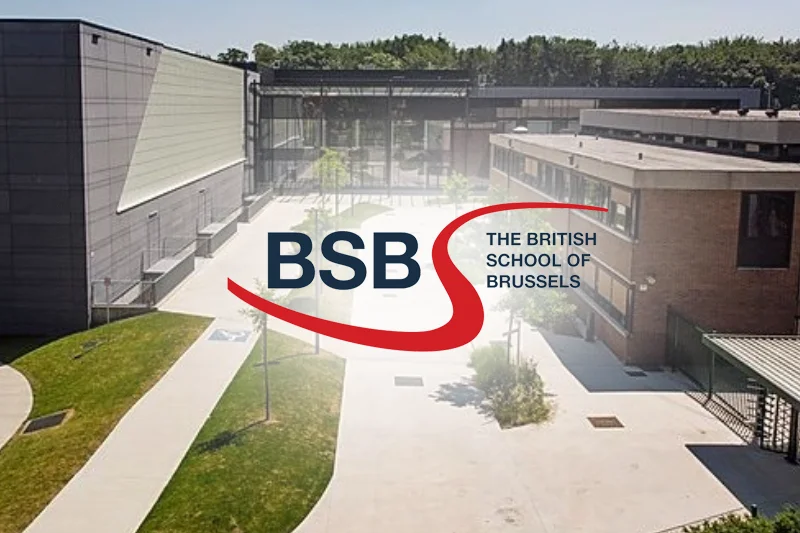A guest author has written this post.
Will choosing a particular subject limit your option in the future? Which IGCSE subjects are the easiest? How many subjects must you take? You’ve got loads of questions. We get it!
Picking your IGCSE subjects is stressful. Our team of IGCSE and IB graduates want you to know: The “perfect subjects” don’t exist. So take a deep breath. Relax. We’re here to give you some Pro advice to make your subject decisions much easier.
Scroll down to learn how important IGCSE results actually are, and find our stress-free guide to choosing your subjects.
IGCSE vs GCSE (General Certificate of Secondary Education) – What’s the difference?
Universities accept both qualifications because they both provide quality education. And an international certificate. The biggest difference between the IGCSE and GCSE is where students can do the exams.
- What is the GCSE?
The General Certificate of Secondary Education (GCSE) is UK government-accredited and is available to students in the UK.
Students must take GCSE exams in the UK. Those taking International GCSEs must travel to the UK to write their GCSE exams.
- What is the IGCSE?
The IGCSE is an international general certificate of secondary education for students all over the world.
Students can take their exams almost anywhere there’s an IB World School.
Are the IGSCE subjects really THAT important?
If you’re worried, a university won’t accept a student just because they took a particular subject instead of another subject. Don’t panic. They won’t.
The truth is: IGCSE-level subjects and IGCSE examinations aren’t really the focus of your university applications. Most schools and universities want to check your mandatory IGCSE Subject Group results:
- IGCSE Curriculum Group 1: Language and Literature
- IGCSE Curriculum Group 2: Humanities and Social Sciences
- IGCSE Curriculum Group 3: Science subjects (Physics, Chemistry, Biology etc)
- IGCSE Curriculum Group 4: Mathematics
- IGCSE Curriculum Group 5: Creative, Technical and Vocational Subjects. (Art and Design, Accounting, Computer Science, Business Studies, etc.)
Remember, we’re using the Cambridge IGCSEs subject requirements for our example; the Pearson Edexcel International GCSE qualification has different requirements.
Top-ranking universities and other educational institutions worldwide are more interested in International Baccalaureate (IB) or/and A-Level minimum requirements and grades.
That’s why the IGCSE certificate is great! It teaches you everything you need to know to succeed. And it proves your academic potential to university admissions boards.
Still not sure you should take the Cambridge IGCSE exams? Check out this blog post.
How to Choose IGCSE Subjects – Lanterna Education’s Guide
We don’t want you to stress about the IGCSE’s additional and core subjects. But that doesn’t mean you shouldn’t take your subject choices seriously.
It’s an excellent opportunity to learn about yourself and the world. And it helps prepare students for the IB DP, university, and career.
Below are some things you should remember when choosing subjects for the IGCSE certificate. Use this guide to make finding the right subjects for you a stress-free and easy process.
1. ‘How you do’ means more than ‘what you do’ in the IGCSE curriculum.
That’s right! It’s all about how you did in the IGCSE. Not which science subjects (or any other subjects) you do.
Subjects don’t make or break someone’s success. They won’t ruin your options in the future or get between you and your dreams. Usually, a top university asks for a student’s subject mark to ensure they did well.
But there are other reasons too… Here are the 3 most popular reasons universities ask for IGCSE results:
Relevant subjects
If you’re interested in a field of academic studies like medicine and engineering, independent schools and higher education providers may want to see your IGCSE results for a relevant subject.
For example, a university admissions board might want to see your Mathematics mark to make sure you’ve got the basic knowledge to start further academic study and become a qualified chemical engineer, neurologist, rocket scientist or whatever your dream job is.
Education standards
How students learn, state schools, private education institutions and learning resources (like textbooks) in most subjects are very different. And students around the world do this certificate.
This is why some international universities ask for a student’s IGCSE subject marks. But they’re not worried about which subjects you choose!
Educational institutions look at core subjects like English Language A: (Language and Literature) or Mathematics to make sure local and international candidates applying to study with them have a quality education.
Studying a university-level subject is no joke, so universities want to make certain the students they accept have the right knowledge and skills to meet the university’s requirements and international standards.
Growth and overall performance
The third most popular reason international schools and universities ask for a student’s IGCSE subject results is to get an idea of their academic journey throughout the IGCSE curriculum.
Your overall performance shows an educational institution how hard you work and proves your commitment to your studies.
Plus, it shows them you didn’t turn a blind eye to your Mathematics coursework. Or neglected other subjects because of your IGCSE extracurricular activities.
2. Choose what YOU like
You didn’t misread that. You really should pick what you like. Students learn faster and perform better when they actually care about what they’re doing (aka active learning).
If you choose subjects you’re really interested in, you’ll make coursework enjoyable and do much better – which means higher grades! Choose subjects for your IGCSE curriculum that:
Meet the minimum number of subjects and requirements you need to get your Cambridge IGCSE certificate
You REALLY enjoy
Or subjects you find interesting! The IGCSE offers over 70 subjects, so there are loads of options. You don’t have to take a subject if you’d much rather do something else.
3. Keep your options open
Our advice? It’s best to cover all your bases. Especially if you’re still not sure about what you want to study or do after school. Students must do a minimum of 5 subjects and can take up to 14 subjects. And, if students take a seventh subject, they can earn a Cambridge International Certificate of Education (ICE). This award looks great on your university applications!
Make sure you choose subjects in all five curriculum areas of the Cambridge IGCSE subject areas:
- Languages
- Humanities and Social Sciences
- Science subjects (Physics, Chemistry, Biology)
- Mathematics
- Creative, Technical and Vocational
Which IGSCE subjects can you choose?
To make your university application stand out, you should study at least one of the science subjects, a foreign language, and a Humanities and Social Science subject.
This way, you’ll have all the subjects you need for your undergraduate course and future studies. Plus, they look fantastic on your university applications!
IGCSE subject options:
You need between 5 and 7 subjects, and you’ve already got Group 1: English (Language and Literature), Group 2: Mathematics, and Group 3: A science subject (Biology/Chemistry/Physics).
So you only need to choose a few more subjects:
Foreign Language:
- Arabic
- Chinese (Mandarin)
- French
- German
- Italian
- Malay
- Spanish
Humanities and Social Sciences:
- Economics
- Geography
- Global Perspectives
- History
- History – American (US)
- Islamiyat
Creative, Technical and Vocational
- Accounting
- Art & Design
- Business Studies
- Computer Science
- Design & Technology
- Drama
- Enterprise
- Food and nutrition
- Information and Communication Technology
- Music
- Physical Education
- Travel and Tourism
Other Science subjects:
- Agriculture
- Environmental Management
- Marine Science
- Physical Education
- Physical Science
Let Lanterna Education help you succeed in the IGCSE!
The Lanterna Education tutors have loads of experience helping students reach their full potential. Through personalized attention, our one-on-one tutoring sessions empower students to build confidence, overcome challenges, and achieve academic success on their educational journey.
And we would love to help you, so we offer one-on-one tutoring sessions with experienced iGCSE tutors. We also provide Free study tips and learning resources for IGCSE students.
Good luck! We hope you find the right subjects to help you thrive in the IGCSE!







